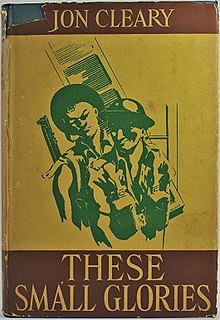
John Joseph Cahill, also known as Joe Cahill or J. J. Cahill, was a long-serving New South Wales politician, railway worker, trade unionist and Labor Party Premier of New South Wales from 1952 to his death in 1959. Born the son of Irish migrants in Redfern, New South Wales, Cahill worked for the New South Wales Government Railways from the age of 16 before joining the Australian Labor Party. Being a prominent unionist organiser, including being dismissed for his role in the 1917 general strike, Cahill was eventually elected to the Parliament of New South Wales for St George in 1925.

The New South Wales Government Railways (NSWGR) was the agency of the Government of New South Wales that administered rail transport in New South Wales, Australia, between 1855 and 1932.
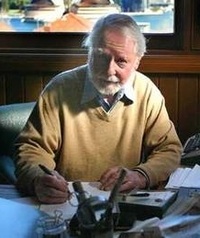
Jon Stephen Cleary was an Australian writer and novelist. He wrote numerous books, including The Sundowners (1951), a portrait of a rural family in the 1920s as they move from one job to the next, and The High Commissioner (1966), the first of a long series of popular detective stories featuring Sydney Police Inspector Scobie Malone. A number of Cleary's works have been the subject of film and television adaptations.

Ronald Grant Taylor was an English-Australian actor best known as the abrasive General Henderson in the Gerry Anderson science fiction series UFO and for his lead role in Forty Thousand Horsemen (1940).

William Thomas Dick was a politician, teacher, actuary and barrister in New South Wales, Australia.

Eureka Stockade is a 1949 British film of the story surrounding Irish-Australian rebel and politician Peter Lalor and the gold miners' rebellion of 1854 at the Eureka Stockade in Ballarat, Victoria, in the Australian Western genre.

The Shire of Erina was a local government area covering the majority of the Central Coast region of New South Wales, Australia. The shire was proclaimed on 7 March 1906 as a result of the passing of the Local Government (Shires) Act 1905 and covered most of the Central Coast region with the exception of the Town of Gosford, which had been incorporated in 1886.
Major William Adolphus Chaffey was an Australian farmer, distinguished soldier and long serving member of the Parliament of New South Wales.
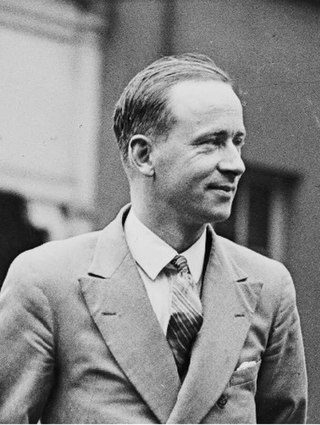
Major Clarence Edward Martin was an Australian politician and a member of the New South Wales Legislative Assembly from 1930 until 1932 and from 1939 until his death in 1953. He was variously a member of the Australian Labor Party (NSW), the Industrial Labor Party and the Labor Party (ALP). He was the Attorney General of New South Wales from 1941 until 1953 and also held the position of Minister for Transport for six months prior to his death.

Dan Morgan is a 1911 Australian film from Charles Cozens Spencer about the bushranger Daniel Morgan. It was said to be starring "Alfred Rolfe and company". Rolfe directed three movies for Spencer, all starring himself and his wife Lily Dampier so there is a chance he may have directed this one and that it starred his wife. A prospectus for the Australian Photo Play Company said he directed it. It is considered a lost film.

The Life Story of John Lee, or the Man They Could Not Hang is a 1912 Australian silent film based on a stage play about the true life story of John Babbacombe Lee.
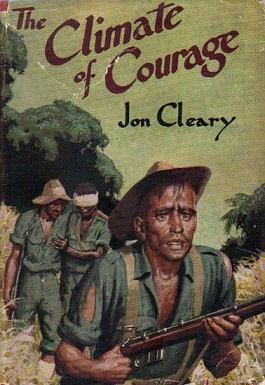
The Climate of Courage is a 1954 novel by Australian writer Jon Cleary. It was his fifth published novel. It is set during World War II and involves a group of Australian soldiers who have returned from service in the Middle East.

The Scarlet Frontier is a 1953 Australian novel by E. V. Timms. It was the sixth in his Great South Land Saga of novels.
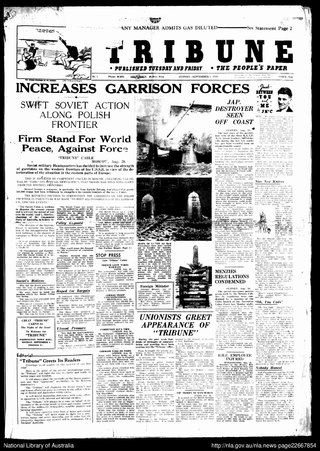
Tribune was the official newspaper of the Communist Party of Australia. It was published by the Central Committee of the Communist Party of Australia from 1939 to 1991. Initially it was subtitled as Tribune: The People's Paper. It was also published as the Qld Guardian, Guardian (Melbourne), Forward (Sydney). It had previously been published as The Australian Communist, (1920-1921) The Communist, (1921-1923) and the Workers' Weekly (1923-1939).

The Magic Gum Tree is a musical comedy written in 1932. The score and lyrics are the singular work of Adelaide pianist and composer Arline Sauer in 1932. Sauer, born Arline Estelle Lower, married her longtime mentor, the well known Sydney conductor, arranger and composer Charles Sauer in May 1924, had twin sons 1925, divorced 1947.
George Smith was an Australian professional soccer player who played as a forward. He captained the Australia national soccer team in 1933. Often considered the best centre-forward in Australian soccer in the 1930s, he had an average of 2.66 goals per game for Australia and has had many goalscoring records throughout his 17-year career.

Percy William Vaughan, known as Colonel Vaughan, was a bank manager and officer in the Australian Army.

Vera Gladys Dwyer was an Australian novelist. She also contributed stories to magazines and newspapers.
The Ship of Ice is a 1946 Australian verse about Antartica by Rosemary Dobson.
Outlaw Kelly is a 1899 Australian play about Ned Kelly by Lancelot Booth.
